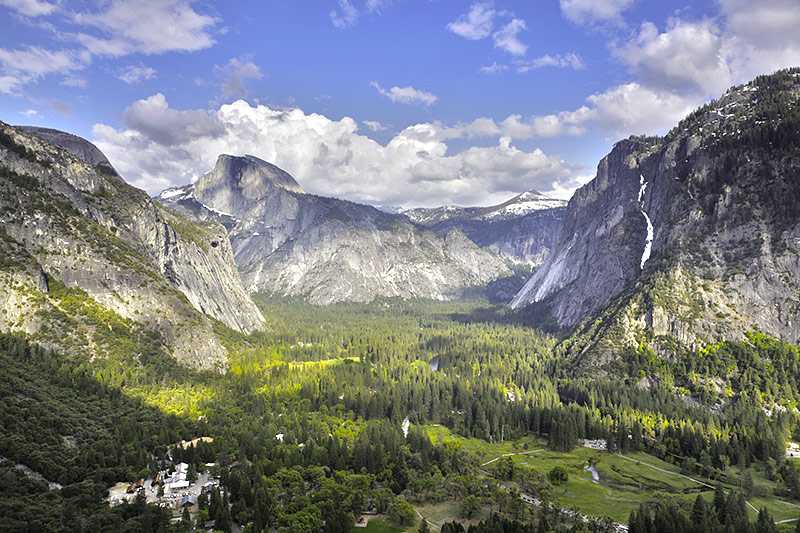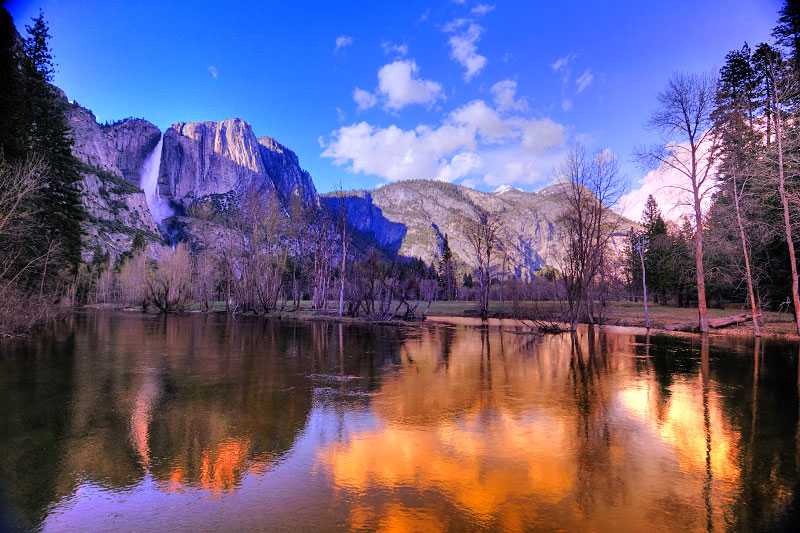Yosemite Falls
About Yosemite Falls
At 740 m (~2,428 ft), Yosemite Falls is the highest measured waterfall in North America, and is situated in the Yosemite National Park in the Sierra Nevada of Califor...
About Yosemite Falls
At 740 m (~2,428 ft), Yosemite Falls is the highest measured waterfall in North America, and is situated in the Yosemite National Park in the Sierra Nevada of California.
The Falls are fed by Yosemite Creek, a relatively unimposing meandering stretch of flowing water which turns into a torrent as it reaches the rim of the valley and drops spectacularly dow...
Things to do near Yosemite Falls
Attractions near Yosemite Falls
Activities
About Yosemite Falls
About Yosemite Falls
At 740 m (~2,428 ft), Yosemite Falls is the highest measured waterfall in North America, and is situated in the Yosemite National Park in the Sierra Nevada of California.
The Falls are fed by Yosemite Creek, a relatively unimposing meandering stretch of flowing water which turns into a torrent as it reaches the rim of the valley and drops spectacularly down to form the falls. The most imposing section of the waterfall is the initial sheer drop of around 436 m (~1,430 ft) to the middle of the gorge. For around 183 m (~600 ft) in the mid-section, the waterfall is almost invisible, till it emerges into view for the final, lowest 98 m (~322 ft).
The Sierra Nevada range is made up almost entirely of exposed granite, and there is little surface soil to retain rain – this means the flow of the waterfall alters dramatically throughout the year. It’s at its peak flow early in the spring when the winter snows are melted and rain falls regularly – by late summer, it’s depleted to a trickle and often during September and November it is dried up altogether. Just one freak rainstorm can be enough to set the falls in full flow, though, so it’s rarely worth the risk for climbers to try and ascend the rock during a dry spell.
Accessibility
The Lower falls are easiest to access from the Yosemite Lodge in Yosemite Valley. There is a 5.6 km (3.5 mi) hike to the top of the upper falls, but this is often overcrowded, and can be a steep and demanding climb.
Yosemite Conservancy restored the approach to the falls in 2005 including disabled access and work to protect and conserve the natural beauty of the area.

